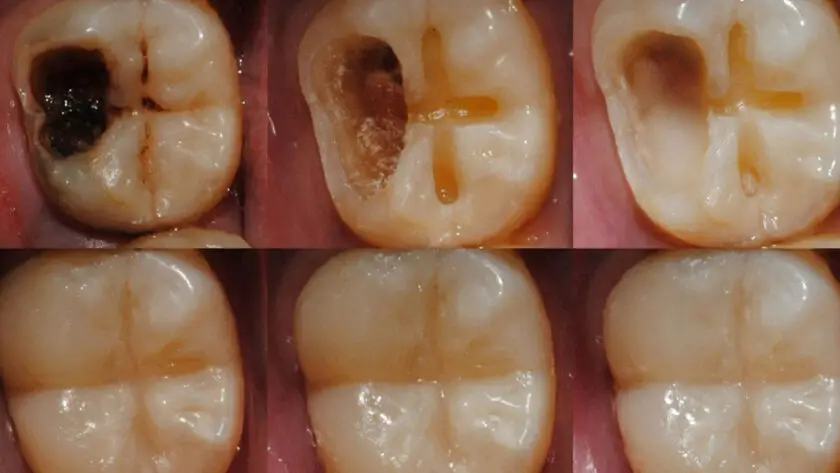For many individuals, missing teeth can significantly impact their quality of life, affecting their ability to eat comfortably and diminishing their self-esteem. However, there is newfound hope on the horizon.
Scientists at Kyoto University in Japan are making groundbreaking strides in the development of tooth regeneration drugs that could potentially revolutionize dental care. With the promise of regrowing lost teeth, this emerging field of research is generating excitement and raising prospects for those who have experienced tooth loss.
In this article, we delve into the latest advancements in tooth regeneration therapies and provide an overview of what you need to know about this innovative approach. From the initial discoveries that paved the way to the upcoming human clinical trials, we explore the potential benefits and challenges associated with these novel drug therapies.
Tooth loss is a significant problem for many people, especially among the elderly. According to the CDC, 17 percent of older individuals in the United States have lost all their teeth.
Excitingly, researchers at Kyoto University’s Graduate School of Medicine in Japan have been working on an innovative solution: a drug therapy designed to stimulate tooth regeneration.
Japanese media reports suggest that the first human clinical trials for this promising drug may begin as early as next year. If successful, tooth regrowth treatment could be available to the public by 2030.
The basis for this potential breakthrough comes from a study conducted by the same research team in 2021. The study identified the crucial role of a protein called USAG-1 in controlling tooth growth.
By deactivating the gene responsible for producing USAG-1, the researchers found that mice were able to naturally regrow their teeth.
Building upon this discovery, the team developed a drug therapy that neutralizes the protein’s function, thereby promoting tooth regrowth. Encouraging results from tests on ferrets, whose dental patterns resemble those of humans, have raised hopes about the therapy’s potential for human use.
Sangre De Grado Heals Receding Gums, And Kills Bacteria In The Mouth! Check Out Radiate 21!
While the initial research and animal studies are promising, the next challenge lies in translating these findings into a practical, safe, and effective treatment for humans. According to reports from the Mainichi newspaper, the researchers plan to begin clinical trials in July 2024.
Katsu Takahashi, the head of the Dentistry & Oral Surgery department at the Medical Research Institute Kitano Hospital in Osaka, expresses his enthusiasm and optimism for the upcoming trial. He sees the idea of growing new teeth as every dentist’s dream and believes in the potential of this medicine for clinical use.
Tooth loss is a global issue affecting many countries, particularly among the older population. In the United States, the statistics are concerning, with over 25 percent of adults aged 65 or older having only eight or fewer teeth, and 17 percent having lost all their teeth. This not only poses health problems but also hampers their ability to maintain a healthy diet and overall quality of life.
The new treatment being developed in Japan could revolutionize dental care by offering those with tooth loss the opportunity to naturally regrow their teeth. The process, referred to as a “third-generation” of tooth regeneration by researchers, mimics the natural tooth development observed in children when they lose their baby teeth and grow permanent adult teeth.
Although the availability of a drug therapy for tooth regeneration by 2030 may sound optimistic, the Japanese research team is confident in their progress. They anticipate positive results from the clinical trials, leading to a transformative advancement in dental care.
While still in the early stages of development, the prospect of this novel therapy has generated excitement within the scientific community and beyond. If successful, it could significantly improve the lives of millions of people worldwide who suffer from tooth loss.
The road to revolutionary dental treatment comes with challenges, but the breakthroughs achieved so far by the Kyoto University team provide hope. As we anticipate the start of human clinical trials next year, the possibility of a world where tooth loss can be effectively reversed no longer seems like science fiction.
This treatment has the potential to revolutionize dental care, transforming tooth loss from a permanent condition into a temporary inconvenience. The development of tooth regeneration drugs offers a glimmer of hope for those grappling with missing teeth.
While the prospect of regrowing lost teeth may seem like something out of science fiction, the dedication and progress made by the researchers at Kyoto University are bringing us closer to a future where dental care is transformed.
Keep an eye on this space, as the journey towards tooth regeneration continues to captivate scientists, dentists, and individuals longing for a brighter, more confident future with a complete set of teeth.
Check Out Radiate 21 To Boost Your Oral Health Naturally!






